Inaugural releases of biocontrol agents against the mango mealybug, attended by the State Minister for Agriculture Hon. Fred Bwiino Kyakulaga, FAO and senior government officials, and IITA’s Georg Goergen (Image Credit: IITA)
Indian Council of Agricultural Research and FAO commend IITA for the successful biocontrol of cassava and mango mealybugs.
When we talk about science-driven, nature-based solutions for plant health management, biological control is the first option that comes to mind. Biological control or biocontrol is the introduction and establishment of better-performing natural enemies of a pest (mostly insects or mites, but also invasive weeds), to impact their populations without using pesticides and, ultimately, to permanently reduce the damage they inflict.
There are two main forms of biocontrol: inundative and ‘classical’ (inoculative) biocontrol. In inundative biocontrol, natural enemies are released repetitively over large areas and in high numbers. The best example in IITA is the acclaimed success of Aflasafe, using atoxigenic strains of Aspergillus flavus to suppress aflatoxin-producing ones.
“When it comes to arthropod biocontrol, our work has focused mainly on ‘classical’ or inoculative biocontrol, and mostly against exotic invasive species. The better performing natural enemies are thereby sought from the area of origin of the invasive species, which is often on another continent,” said Manuele Tamò, Insect Ecologist and Benin Country Representative, based at IITA, Cotonou, Benin.
The IITA-led Africa-wide biological control of cassava mealybug, carried out in the 80s, remains today the most successful and impactful biocontrol project worldwide. Besides bringing the cassava mealybug populations under total control and restoring yield losses, it also provided the opportunity to sensitize farmers, extension agents, colleague researchers, and policy makers on the benefits of this approach.
This historic success echoed far beyond Africa. When the cassava mealybug invaded Asia, starting with Thailand, and most recently India, national programs quickly turned to IITA, asking for assistance in providing biocontrol agents for inoculative releases from our IITA-Benin insectaries. Despite the challenges posed by the Covid-19 pandemic, IITA-Benin successfully transferred the parasitoid to India. These efforts, coordinated by IITA entomologist Georg Goergen and carried out in collaboration with national plant protection staff and local authorities, yielded remarkable results. The impact in India mirrored the African experience. From Drs M Mohan and S N Sushil, senior ICAR scientists:
“We deeply appreciate IITA-Benin’s efforts during the Covid-19 pandemic in succeeding to transfer the parasitoid Anagyrus lopezi as a biological solution to address the cassava mealybug issue in India. The classical biological control agent has been performing extremely well in all the released sites of Tamil Nadu (cassava mealybug Tamil Nadu) and could bring down the cassava mealybug population drastically in a short time. We express our profound gratitude to you and your team for such a wonderful gift to our Indian farmers.”
Closer to home, the successful biocontrol of mango mealybug in West Africa has been another major achievement by IITA. When a sudden outbreak of this pest occurred in the Great Lakes region in Eastern Africa, FAO immediately contacted IITA for help.
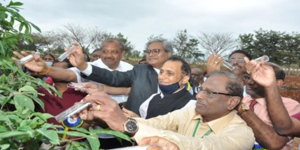
Cassava mealybug parasitoids being released in a cassava plantation in Tamil Nadu. (Image Credit: ICAR-NBAI)
In summary, two years after the initial releases, joint surveys in Burundi, Rwanda, and Uganda by Goergen with FAO staff and national scientists have demonstrated that the mango mealybug was totally under control on some 250,000 trees at no cost to the producers.
Upon receiving the final technical report earlier this year, Crop Production Officer at FAO-Subregional Office for Eastern Africa, Orlando Sosa, officially commended Goergen and IITA for their impressive achievement.
“I want to convey to IITA that this collaboration between our organizations has been very successful. Through this action, we have averted a new regulated quarantine plant pest from extending its range from the point of first detection to other countries in the East African subregion.
The countries of Uganda, Rwanda, and Burundi report that after two years of suffering the ravages of the mango mealybug, mango productivity is back to normal.
The expertise from both our organizations and the national experts has made this possible.
I would like to specifically acknowledge Mr Goergen’s collaboration and key role in this effort and express our gratitude to your organization for his dedication and professionalism, as well as the use of his expertise and that of his staff in Benin.
We look forward to future engagements with IITA to advance sustainable agriculture in Africa.”
On this International Plant Health Day, IITA encourages the adoption and scaling of nature-based solutions rooted in science for sustainable and eco-friendly farming, which is safe for crops, the environment, and human and animal health. With Science, We Can!
Contributed by IITA-Benin Team

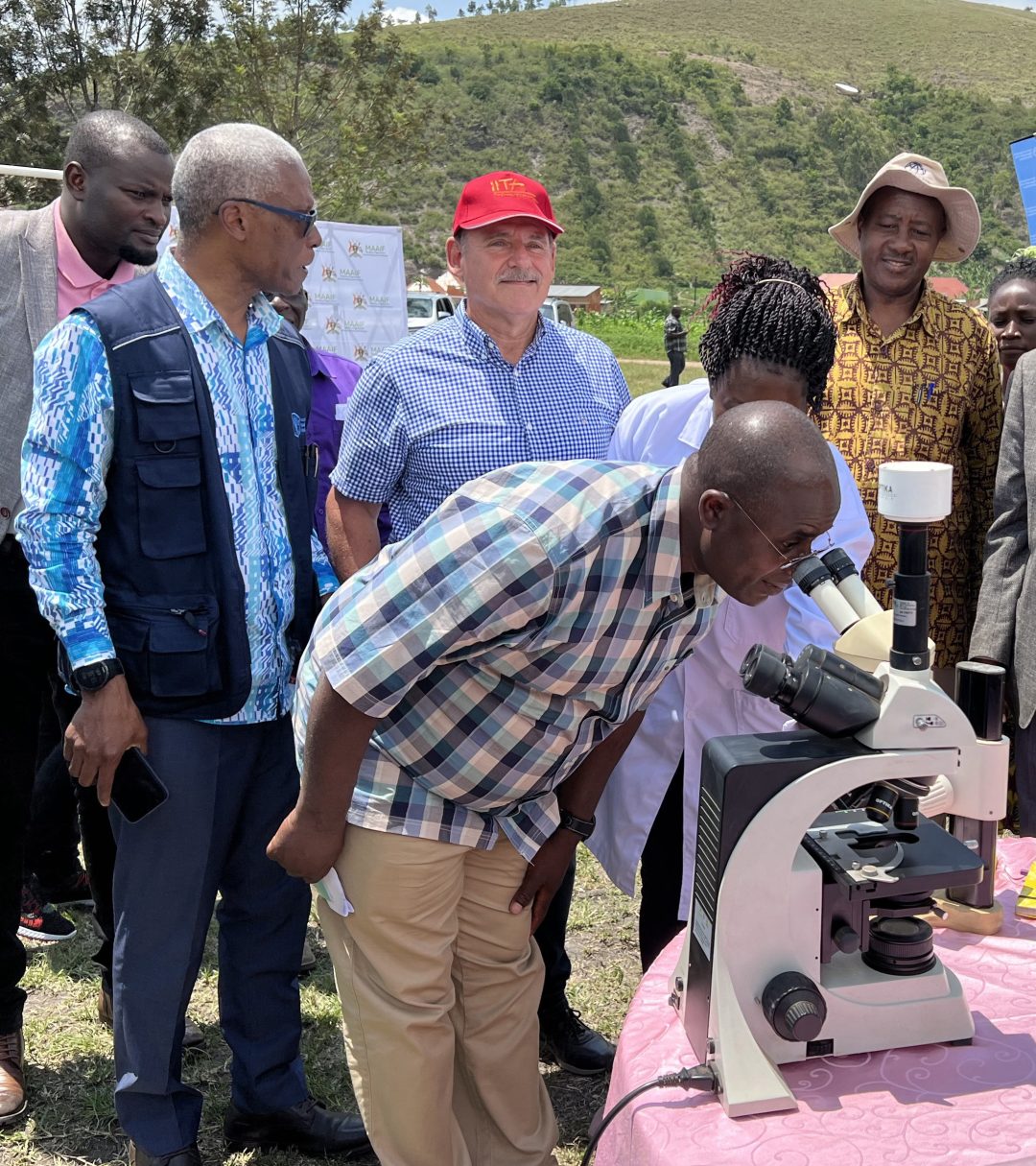
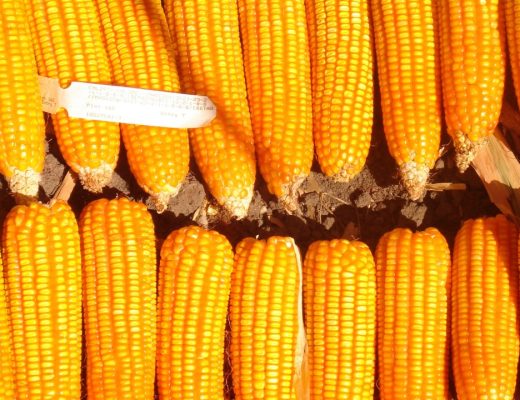
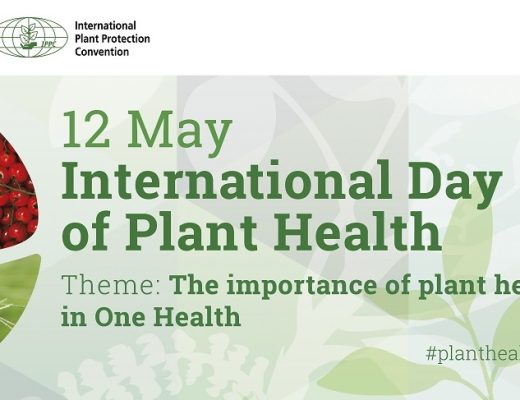
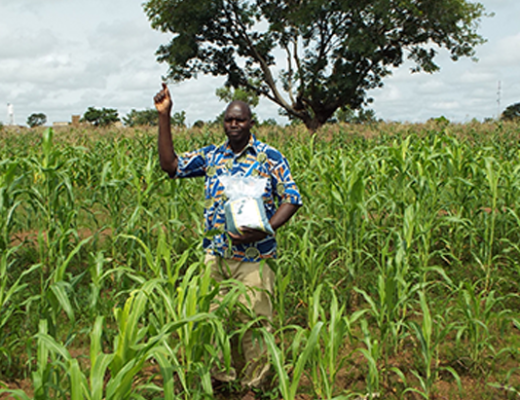
No Comments